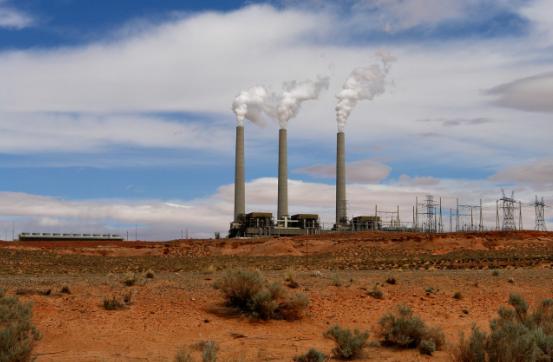By: Sofia Carrasco
When someone acquainted with the climate movement thinks of major polluters, the oil and gas company ExxonMobil is a Big Bad that often comes to mind. For good reason, no doubt — the company is notorious for dodging all mentions of its emissions, funding disinformation campaigns, and even downright ignoring the findings of its own scientists. That said, it’s easy to forget that some people’s livelihoods rely directly on these companies — and that if we want to transition to a greener future, we have to provide a feasible pathway for them to find new careers.
To understand this mental and financial process, we can turn to Dar-Lon Chang, a man who worked at Exxon for 16 years, originally believing that the company was making steps towards a renewable transition. However, he soon discovered the falsehoods in his thinking. He describes the existential pressure to have burdened him enough that eventually, he snapped. “I didn’t want the rest of my career to be wasted on something that I felt was making the world worse,” he explained to InsideClimate News, “when there was all the possibility to make things better.” He now lives in a net-zero community in Colorado, with hopes of raising his children in a place that truly aspires to change. It’s a wonderful story, but the truth is that most of Exxon’s workers simply lack the opportunity to quit. One anonymous ex-employee recounted that, in their experience, “most employees under the age of 50 thought climate change was a serious issue.” Though the generational schism is to be expected, the “most” in that sentence may come as a shock. Yet multiple studies have found that at least half of fossil fuel workers admit the urge to switch sectors. The factors that prevent this, however, can range from financial dependency to politicization, to having specialized degrees that might be otherwise useless. (Even Dar-Chang, who remains well-off, is struggling to find work with renewables and currently serves on his city’s sustainability council. A worthy job, but not much use for an engineering degree.)
Thankfully, there are organizations working to thwart this issue. The Just Transition Fund, for one, whose focus is on assisting communities in coal-affected areas of the United States. Programs like these help people such as the Navajo Nation — whose coal power plants once brought them profit with the caveats of jeopardized water sources and detrimental health conditions — apply for federal funding. Regardless, these actions can only happen after dialogue has been created. “We’re trying to compel [the New Mexico and Arizona governments] to provide some kind of transition support for the Navajo Nation instead of just walking away and leaving,” responds activist Nicole Horseherder months before the first solar plant was successfully established in her homeland. Furthermore, High Country News exemplifies that these local transitions have helped Diné (Navajo) entrepreneurs receive the investments and infrastructure necessary for future prosperity. Not only this, but technology such as off-the-grid solar can boost the community’s self-reliance. “When a family member can manage their energy load and own their power,” concludes Horseherder, “that’s part of the self-determination and self-reliance that we are trying to attain, as a nation and as a people.”
Where does Youth V. Oil fit into this equation? Education is key, and it’s valuable that people entering the workforce are aware of how their sector fits into the climate crisis and why a switch to renewables is imperative. More governmental subsidies are also vital for future waves of displaced workers, so reach out to organizations such as the Just Transition Fund, BlueGreen Alliance, and SanDiego350 (of course) to support and continue discussions about the ways that the government can systematically encourage a transition away from fossil fuels. And above all, take a look at your neighbor. Largely, everyone knows someone with faulty or closed-minded viewpoints regarding this crisis, or one who simply finds the topic easier to avoid. Nevertheless, people’s notions often come from feeling pigeonholed, and even a simple conversation with someone you love can make all the difference.
Works Cited
“A Disillusioned ExxonMobil Engineer Quits to Take Action on Climate Change and Stop “Making the World Worse.”” Inside Climate News, 8 Feb. 2021, insideclimatenews.org/news/08022021/a-disillusioned-exxonmobil-engineer-quits-to-take-action-on-climate-change-and-stop-making-the-world-worse/.
Feb. 1, Jessica Kutz Image credit: Cassidy Araiza/High Country News, and 2021 From the print edition. “The Fight for an Equitable Energy Economy for the Navajo Nation.” Www.hcn.org, 1 Feb. 2021, www.hcn.org/issues/53.2/south-coal-the-fight-for-an-equitable-energy-economy-for-the-navajo-nation.
“Spotify.” Open.spotify.com, spotify.link/4SfeNaX4UDb. Accessed 4 Nov. 2023.
“The Fossil Fuel Workers Switching to Clean Energy Jobs | UBC Magazine.” Magazine.alumni.ubc.ca, 22 Apr. 2022, magazine.alumni.ubc.ca/2022/fossil-fuel-workers-switching-clean-energy-jobs.

